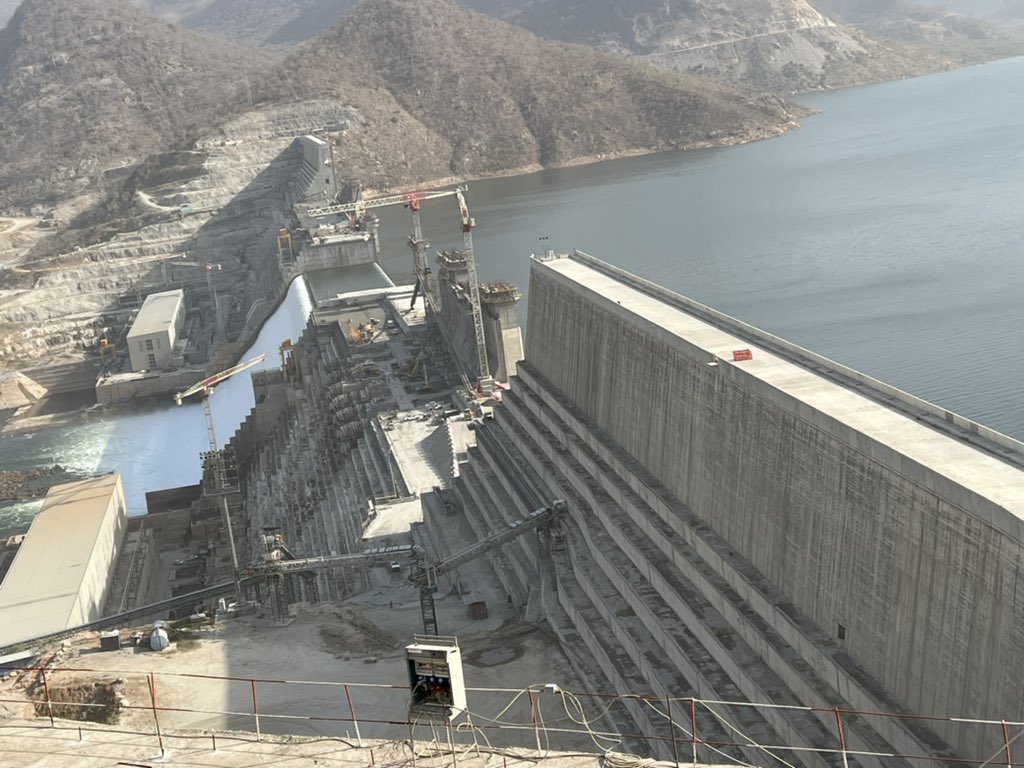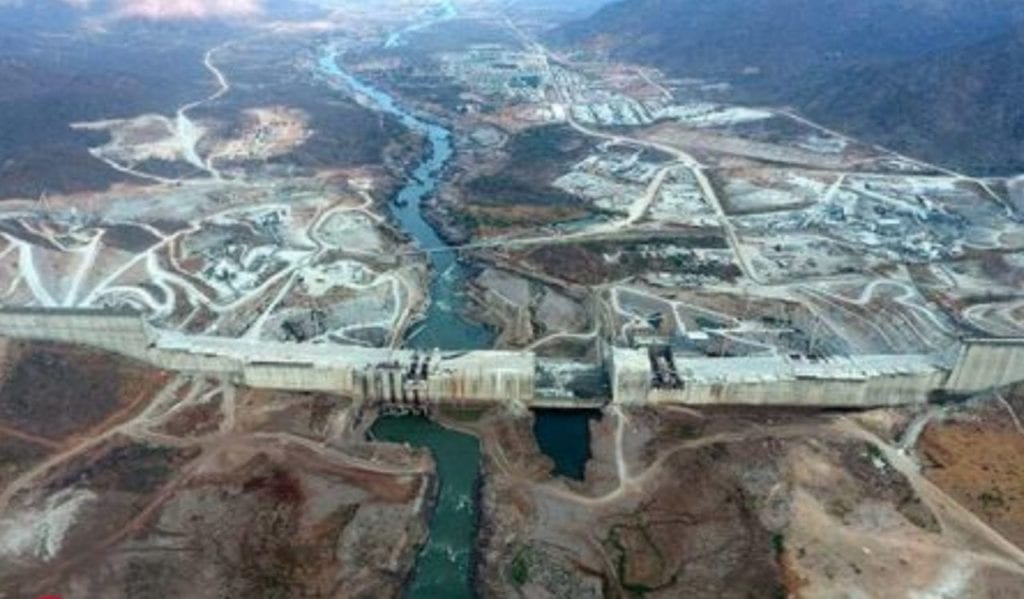Egypt, Hosting COP27, Renews Call for Resolution on GERD Hydro Project

The world's largest event centered around climate change is shining a spotlight on one of the most-pressing debates in the Arab world-what to do about the Grand Ethiopian Renaissance Dam (GERD).
Egypt is the host for this year's United Nations Climate Change Conference, or COP27 (Conference of Parties), in Sharm El Sheikh, running Nov. 6-18. During the trilateral negotiations over the past several years about the dam's construction and operation, the issue of the water to fill the dam has brought contentious discussions among Ethiopia, which is building the hydroelectric facility, and downstream nations Egypt and Sudan.
Egypt and Sudan, which depend on water from the Nile, continue to push Ethiopia to sign a legally binding agreement on the filling and operation of the dam, which when complete is expected to have about 5.2 GW of hydropower capacity. Officials have the GERD's reservoir capacity is 74 cubic kilometers (km). The project's current timeline calls for total commercial operation to begin in 2025. Construction of the dam began in 2011.
Water Supplies at IssueEgyptian President Abdel Fattah Al-Sisi on Nov. 2, in a speech at the 31st Arab Summit in Algeria, said the water security issue caused by the dam impacts several Arab countries and will bring serious consequences for water supplies if their concerns continue to be ignored.
 The GERD project is located about 500 km northwest of the Ethiopian capital Addis Ababa, in the region of Benishangul-Gumuz along the Blue Nile. Coutesy: WeBuild
The GERD project is located about 500 km northwest of the Ethiopian capital Addis Ababa, in the region of Benishangul-Gumuz along the Blue Nile. Coutesy: WeBuild
The GERD is located on the Blue Nile, a major tributary of the Nile River, in the northwestern Ethiopian region of Benishangul-Gumuz. The dam is located about 500 kilometers (311 miles) northwest of Ethiopia's capital Addis Ababa, and just 15 km (9 miles) from the border with Sudan. The project is being constructed by Webuild Group, a subsidiary of Italian construction giant Salini Costruttori S.p.A., for state-owned Ethiopian Electric Power.
Webuild has said the project will feature more than a dozen 375-MW Francis turbines. The first of those turbines began delivering power in February of this year, and a second turbine entered service in August.
Security Council StatementAl-Sisi on Wednesday said Ethiopia must adhere to statements from the U.N. Security Council during negotiations for the dam's construction, which called for ensuring the GERD project considers both the needs of Ethiopia's population, as well as safeguarding the people of both Egypt and Sudan. He said climate change is a reality imposed on the world," a likely reference to drought conditions impacting hydropower projects and water supplies worldwide.
Egypt and members of the European Union have supported the Security Council's statement on GERD made last year, which said Ethiopia, Egypt, and Sudan needed a legally binding deal to fill and operate the dam, and acknowledging the Nile River's importance to the region. EU countries in particular have said Egypt's interests must be protected.
Egypt will keep in mind the cohesion of the Arab entity, its preservation and protection, and will always be present in support of you, keeping its doors open to all Arab children in order to defend their present and future generations," Al-Sisi said Wednesday, calling for Arab leaders to meet at the COP27 conference.
Important Project for EthiopiaEthiopia is funding the GERD project. Habtamu Itefa, minister for Ethiopia's Water and Energy Ministry, in late October told The Reporter news service of Addis Ababa, There are indications and requests that Egypt is to develop concepts of legally enforceable agreements to compel Ethiopia to release water from the dam anytime the downstream nations declare they are experiencing drought." The news service said Habtamu is concerned that main agenda of the discussions about GERD, currently at a two-year stalemate among Ethiopia, Sudan, and Egypt, will shift from water filling to drought and climate change.
Habtamu told The Reporter: When we started to build the dam, they couldn't do anything about it so they came up with the idea of discussing on how it should be filled with terms of binding agreements. Now that we have already started filling it, they aren't in a position to mandate us anymore." The news service reported that Habtamu thinks that after the third filling of the dam was completed in July of this year, Egypt decided to switch the narrative about the dam to how the GERD could impact water supplies due to drought and climate change.
Sameh Shoukry, Egypt's foreign minister, in a July letter to the U.N. Security Council, said Egypt held a total rejection" of Ethiopia's approach to filling the reservoir.
The dispute over construction of the GERD has continued for years. Egypt has said the Nile contributes 90% of the country's fresh water and is critical for its irrigation and power generation, and has insisted on international measures to reach a binding agreement on the dam's filling. Sudan has expressed many of the same concerns.
Ethiopia has moved forward with the project, saying it would double the country's electricity output and provide power for the more than 40% of the Ethiopian population that does not have access to electricity. It also has said the dam, as part of a $40 billion plan to increase the country's power generation, will bring benefits for the entire region.
The Biden administration in July reiterated its support for Egypt's water security and also has called for an agreement over the use of water from the Nile that addresses the concerns of each country.
-Darrell Proctor is a senior associate editor for POWER (@POWERmagazine).
The post Egypt, Hosting COP27, Renews Call for Resolution on GERD Hydro Project appeared first on POWER Magazine.